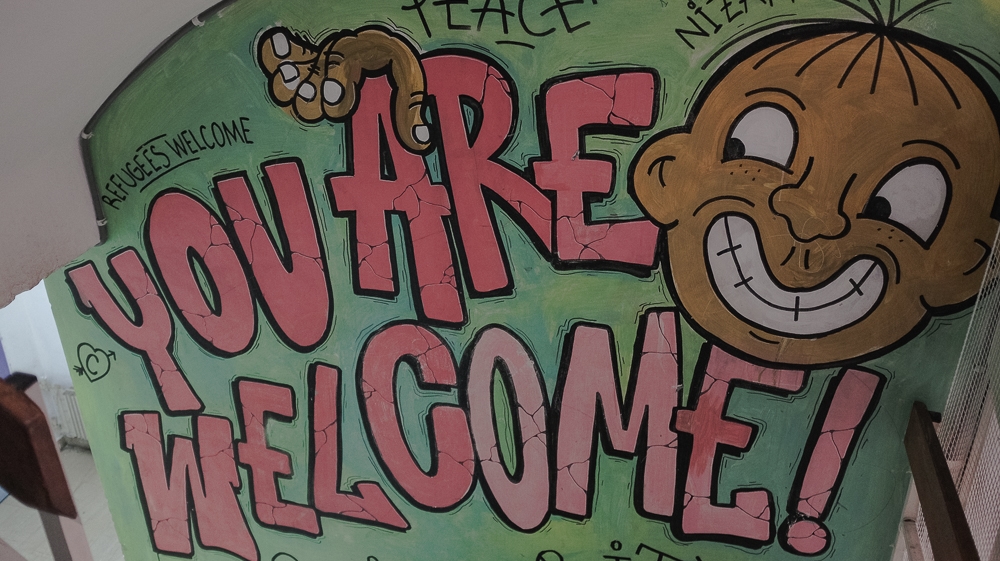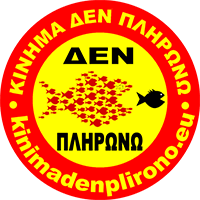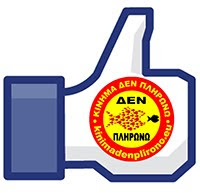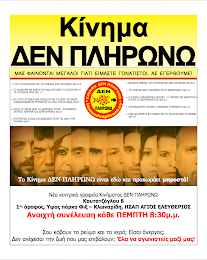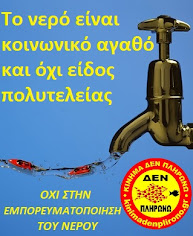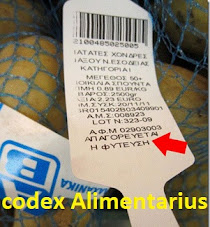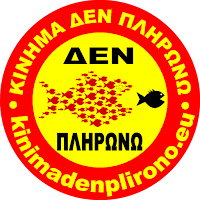Around a dozen squats provide housing for refugees and migrants in the Exarchia neighbourhood of Athens.
byPatrick Strickland
Athens, Greece - On a cold night in late December at a smoky venue in the...
Greek capital, Anfo takes to the stage and immediately launches into a song.
A tall, thin man in a Soviet beret, guitarist Nikos stands on the edge of the stage. The vocalist, Sotiris, lowers his head and looks downward between guttural screams.
Behind them, Giorgos Chloros pounds away at the drums. Anfo, a leftist punk band, is joined by a handful of other punk outfits.
"Everybody [in Anfo] is involved in the anti-capitalist struggle in some form," Chloros, a 45-year-old socialist, told Al Jazeera, explaining that they perform at anti-racism festivals and other pro-refugee events.
Although Anfo often plays for free, on this particular evening they are charging a five euro fee to raise money for a squat where refugees and migrants live in the Exarchia neighbourhood of the Greek capital. Attended by more than 800 people, the bands have raised nearly 4,000 euros ($4,294) by the end of the night.
The money has gone to cover repairs and the installation of heating in the Notara 26 squat, where more than 80 refugees and migrants live on a graffiti-blanketed street near the National Technical University of Athens, a school with historic significance that dates back to a popular student uprising against Greece's military junta in 1973.
Standing around with his fellow band members and cracking open beers backstage after Anfo's set, Chloros says: "We go to as many demonstrations to support refugees as we can."
Anfo, as a band and as individuals, are not exceptions. "Punk rock musicians have always been involved in such kinds of solidarity festivals," he adds.
The Notara 26 squat is located in a building taken over by anarchists and solidarity activists in September 2015 in Exarchia, a hub of refugee solidarity.
The squat operates on principles of self-organisation and anti-authoritarianism, with activists and refugees making all decisions in assembly meetings that strive to reach a consensus between everyone involved.
The volunteers at the squat include teachers, social workers, doctors and full-time activists, among others.
'Human beings and not numbers'
Originally operating as a transit centre for refugees and migrants en route to Western Europe, Notara became a full-time residence for more than 80 people when borders across the Balkans closed following an agreement between the European Union and Turkey to halt the flow of asylum seekers in March 2016.
More than 62,000 refugees and migrants have been stranded in Greece because of that agreement, many living in decrepit and under-supplied camps across the country's mainland and islands.
Declining to provide his full name for legal reasons, Stelius, a solidarity activist who volunteers in Notara, explained that the squat's current challenge is adapting the building to be suitable for full-time housing.
On a brisk afternoon a few days after the fundraising show, a handful of Notara residents hammer away as they erect walls to create small rooms for individuals. Others sit around in the common space and chat while their telephones charge.
"The idea now is to provide housing, community and a place for people to establish a base so they can work towards what they want in their lives," he told Al Jazeera.
With conditions in refugee camps becoming increasingly squalid by the day, squats fill a void where the Greek state and international refugee agencies fail.
"This is about individual caring about people and not by mass numbers," Stelius said. "This is the biggest distinction between us and the state. We treat people like human beings and not numbers."
With hopes that the borders will reopen now fading, and the EU relocation programme moving at a snail's pace, far-right attacks on refugees have increased in recent months.
Tucked away in Exarchia's narrow alleyways are several operations like Notara, as well as nearly a dozen other squats that provide food and social services.
Elsewhere in Athens, City Plaza, an abandoned hotel that was occupied by activists last April, has been turned into housing for hundreds of refugees and migrants.
Maria Kenti Kranidioti, a PhD student at Durham University whose research focuses on Exarchia's role in the refugee crisis, explained that the neighbourhood's pre-existing "solidarity economy" made it well prepared for the influx of refugees.
Established by leftists and anarchists, self-organised soup kitchens, healthcare centres, social centres and squats had long existed in Exarchia, expanding when Greece was hit by its own economic crisis in 2008.
'Solidarity economy'
Dating back to the 1980s, the anti-fascist movement - colloquially referred to as "Antifa" - had been organising in the neighbourhood against far-right political currents.
"Solidarity activists were the first to support full citizenship and political rights for migrants without exception," Kranidioti told Al Jazeera, referring to displaced people arriving in Greece before the refugee crisis exploded in 2014.
"In Exarchia, they have an alternative economy and this multi-faceted place where they can organise these types of places," she added, explaining that the area was also an ideal centre for refugee solidarity because police rarely enter for fear of provoking clashes with activists.
She argued that many Greeks were able to empathise with refugees and migrants because they saw the EU and the Greek state as the primary causes of both groups' hardships.
'Class war university'
Rami, a 38-year-old Palestinian refugee from Syria, lived in camps on the Chios island before coming to Athens and eventually landing in Notara.
Fearing for the safety of his mother and children back in war-torn Syria, he asked Al Jazeera to withhold his surname.
"There are many different problems in the camps," Rami told Al Jazeera, alluding to a shortage of basic humanitarian goods, poor food and a lack of access to adequate medical treatment.
"Here in the squats, there is a community. You feel like it's a family environment. In Notara, we feel like it's a big family, like it's our home."
Rami fled Syria's Aleppo after being called up for mandatory military service in the Syrian army, leaving behind his mother, two children and sister. He recently obtained asylum in Greece and hopes to bring them through a family reunification programme.
For him, Notara is a superior option to camps not just because of the poor conditions in state-run refugee shelters, but also because of the squat's location in central Athens and proximity to work opportunities and state services.
"The camps are isolated. A lot of times they are outside of the city. Here you are inside the city. You feel like a human being, you can go out and communicate with people," he explained.
Referring to racist attacks on refugee accommodation, he concluded: "You don't feel alone here ... like when the fascists attacked the camps and the police did nothing. We escaped violence and we don't want to be involved in it at all any more."
Back at the punk rock show, Anfo's Giorgos Chloros says: "Exarchia is a friendly neighbourhood. It's always been the area of intellectuals, open-minded people, leftists, anarchists, unionists. It's something like a big open class-war university."
Asked whether Anfo will perform in similar gigs in the future, he concludes: "We hope that a time comes when refugees no longer need solidarity. We would like to live in a world where no one needs solidarity. But of course we will stand with them in the meantime."
Πηγή: aljazeera.com
byPatrick Strickland
Athens, Greece - On a cold night in late December at a smoky venue in the...
Greek capital, Anfo takes to the stage and immediately launches into a song.
A tall, thin man in a Soviet beret, guitarist Nikos stands on the edge of the stage. The vocalist, Sotiris, lowers his head and looks downward between guttural screams.
Behind them, Giorgos Chloros pounds away at the drums. Anfo, a leftist punk band, is joined by a handful of other punk outfits.
"Everybody [in Anfo] is involved in the anti-capitalist struggle in some form," Chloros, a 45-year-old socialist, told Al Jazeera, explaining that they perform at anti-racism festivals and other pro-refugee events.
Although Anfo often plays for free, on this particular evening they are charging a five euro fee to raise money for a squat where refugees and migrants live in the Exarchia neighbourhood of the Greek capital. Attended by more than 800 people, the bands have raised nearly 4,000 euros ($4,294) by the end of the night.
The money has gone to cover repairs and the installation of heating in the Notara 26 squat, where more than 80 refugees and migrants live on a graffiti-blanketed street near the National Technical University of Athens, a school with historic significance that dates back to a popular student uprising against Greece's military junta in 1973.
Standing around with his fellow band members and cracking open beers backstage after Anfo's set, Chloros says: "We go to as many demonstrations to support refugees as we can."
Anfo, as a band and as individuals, are not exceptions. "Punk rock musicians have always been involved in such kinds of solidarity festivals," he adds.
The Notara 26 squat is located in a building taken over by anarchists and solidarity activists in September 2015 in Exarchia, a hub of refugee solidarity.
The squat operates on principles of self-organisation and anti-authoritarianism, with activists and refugees making all decisions in assembly meetings that strive to reach a consensus between everyone involved.
The volunteers at the squat include teachers, social workers, doctors and full-time activists, among others.
'Human beings and not numbers'
Originally operating as a transit centre for refugees and migrants en route to Western Europe, Notara became a full-time residence for more than 80 people when borders across the Balkans closed following an agreement between the European Union and Turkey to halt the flow of asylum seekers in March 2016.
More than 62,000 refugees and migrants have been stranded in Greece because of that agreement, many living in decrepit and under-supplied camps across the country's mainland and islands.
Declining to provide his full name for legal reasons, Stelius, a solidarity activist who volunteers in Notara, explained that the squat's current challenge is adapting the building to be suitable for full-time housing.
On a brisk afternoon a few days after the fundraising show, a handful of Notara residents hammer away as they erect walls to create small rooms for individuals. Others sit around in the common space and chat while their telephones charge.
"The idea now is to provide housing, community and a place for people to establish a base so they can work towards what they want in their lives," he told Al Jazeera.
With conditions in refugee camps becoming increasingly squalid by the day, squats fill a void where the Greek state and international refugee agencies fail.
"This is about individual caring about people and not by mass numbers," Stelius said. "This is the biggest distinction between us and the state. We treat people like human beings and not numbers."
Tucked away in Exarchia's narrow alleyways are several operations like Notara, as well as nearly a dozen other squats that provide food and social services.
Elsewhere in Athens, City Plaza, an abandoned hotel that was occupied by activists last April, has been turned into housing for hundreds of refugees and migrants.
Maria Kenti Kranidioti, a PhD student at Durham University whose research focuses on Exarchia's role in the refugee crisis, explained that the neighbourhood's pre-existing "solidarity economy" made it well prepared for the influx of refugees.
Established by leftists and anarchists, self-organised soup kitchens, healthcare centres, social centres and squats had long existed in Exarchia, expanding when Greece was hit by its own economic crisis in 2008.
'Solidarity economy'
Dating back to the 1980s, the anti-fascist movement - colloquially referred to as "Antifa" - had been organising in the neighbourhood against far-right political currents.
"Solidarity activists were the first to support full citizenship and political rights for migrants without exception," Kranidioti told Al Jazeera, referring to displaced people arriving in Greece before the refugee crisis exploded in 2014.
"In Exarchia, they have an alternative economy and this multi-faceted place where they can organise these types of places," she added, explaining that the area was also an ideal centre for refugee solidarity because police rarely enter for fear of provoking clashes with activists.
She argued that many Greeks were able to empathise with refugees and migrants because they saw the EU and the Greek state as the primary causes of both groups' hardships.
'Class war university'
Rami, a 38-year-old Palestinian refugee from Syria, lived in camps on the Chios island before coming to Athens and eventually landing in Notara.
Fearing for the safety of his mother and children back in war-torn Syria, he asked Al Jazeera to withhold his surname.
"There are many different problems in the camps," Rami told Al Jazeera, alluding to a shortage of basic humanitarian goods, poor food and a lack of access to adequate medical treatment.
"Here in the squats, there is a community. You feel like it's a family environment. In Notara, we feel like it's a big family, like it's our home."
Rami fled Syria's Aleppo after being called up for mandatory military service in the Syrian army, leaving behind his mother, two children and sister. He recently obtained asylum in Greece and hopes to bring them through a family reunification programme.
For him, Notara is a superior option to camps not just because of the poor conditions in state-run refugee shelters, but also because of the squat's location in central Athens and proximity to work opportunities and state services.
"The camps are isolated. A lot of times they are outside of the city. Here you are inside the city. You feel like a human being, you can go out and communicate with people," he explained.
Referring to racist attacks on refugee accommodation, he concluded: "You don't feel alone here ... like when the fascists attacked the camps and the police did nothing. We escaped violence and we don't want to be involved in it at all any more."
Back at the punk rock show, Anfo's Giorgos Chloros says: "Exarchia is a friendly neighbourhood. It's always been the area of intellectuals, open-minded people, leftists, anarchists, unionists. It's something like a big open class-war university."
Asked whether Anfo will perform in similar gigs in the future, he concludes: "We hope that a time comes when refugees no longer need solidarity. We would like to live in a world where no one needs solidarity. But of course we will stand with them in the meantime."
Πηγή: aljazeera.com




